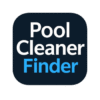Handheld cordless pool vacuums are compact, versatile tools that simplify pool maintenance—without hoses or cords. 💦 While many pool owners assume they’re only for quick floor touch-ups, these devices can clean walls, steps, and even the waterline with the right attachments and techniques. This expanded guide will walk you through each area, practical tips, enriched real-life scenarios, FAQs with context, and actionable final advice. 🧽🔋
What Areas Handheld Cordless Pool Vacuums Can Clean
Cordless handheld vacuums excel at precision cleaning and portability. With the right head attachment and battery power, they can handle:
🏊 Pool Floors: Remove sand, grit, and leaves in targeted passes, perfect for spot cleaning between full cleanings.
🧱 Walls: Use a brush attachment to scrub away algae or dirt buildup effectively.
Steps and Benches: Compact heads reach tight corners and awkward ledges.
💦 Waterline: Soft-bristle brush attachments remove sunscreen residue, body oils, and grime.
Key Insight: Cleaning range depends on attachment type, battery run time, and your cleaning technique.
📚 Recommended Reading: What Are Handheld Cordless Pool Vacuums and How Do They Work?
Tips for Cleaning Each Area
1. Pool Floors
Use the widest suction head available.
Move slowly in straight, overlapping lines.
Clean after debris settles for better pickup.
2. Pool Walls
Attach a brush head and apply steady pressure.
Move from top to bottom for uniform results.
Focus on shaded areas where algae thrive.
3. Steps and Benches
Use small, maneuverable heads.
Approach from multiple angles to dislodge debris.
Keep the vacuum submerged for consistent suction.
4. Waterline
Use soft-bristle attachments to prevent scratches.
Move slowly to avoid splashing.
Clean in sections for thorough coverage.
📚 Recommended Reading: How to Clean Pool Corners with a Handheld Cordless Pool Vacuum
Real-Life Scenarios – Cleaning Coverage with Handheld Cordless Vacuums
Scenario 1: Sandy Pool Floor After a Beach Day
After friends or family return from the beach, fine sand often settles at the bottom of the pool. A wide head clears sand efficiently in a few passes, preventing it from clogging the filter and maintaining smooth circulation. Regular spot cleaning like this can save hours in filter maintenance.
Scenario 2: Algae Spots on Shaded Walls
When parts of your pool are shaded for most of the day, algae can thrive there. A brush head loosens buildup, and suction removes debris instantly, preventing algae spread and keeping walls visibly clean for longer.
Scenario 3: Leaves on Built-In Benches
In autumn or after windy days, leaves tend to settle on submerged benches. A narrow head reaches every corner without disturbing settled debris nearby, saving cleanup time and keeping seating areas inviting.
Scenario 4: Waterline with Sunscreen Film
Oily films from sunscreen and lotions can discolor the waterline over time. Soft bristles scrub away oily residue in minutes, restoring a clean finish and helping prevent stubborn staining.
Scenario 5: Post-Windstorm Cleanup
Storms can bring in twigs, leaves, and dirt. Begin with large debris removal using a skimmer net, then spot clean walls, steps, and floor with your cordless vacuum for a polished, swim-ready look.
📚 Recommended Reading: Handheld Cordless Pool Vacuum Suitability for Pebble, Tile, Fiberglass, Gunite, Exotic, and Vinyl Surfaces
FAQs About Handheld Cordless Pool Vacuums and Cleaning Coverage
Can cordless vacuums clean vertical walls effectively?
Yes, with brush attachments and steady technique, they can remove algae and dirt buildup effectively. Focusing on trouble spots regularly prevents heavy buildup that requires more aggressive cleaning.
Do they work for steps and corners?
Yes, soft-bristle attachments help break down grime without damaging surfaces. For stubborn buildup, combine with a mild pool-safe cleaner.
Can they clean the waterline?
Yes, soft-bristle attachments help break down grime without damaging surfaces. For stubborn buildup, combine with a mild pool-safe cleaner.
Are they effective on all pool surfaces?
Yes, provided you use attachments designed for vinyl, fiberglass, or tile. Always check the manufacturer’s instructions to avoid accidental damage.
Do I need multiple attachments?
Yes, different heads improve efficiency on specific areas and debris types. Having a set of attachments ensures optimal performance for varied cleaning needs.
📚 Recommended Reading: Choosing the Right Brush Attachments for Handheld Cordless Pool Vacuums
Final Advice
Handheld cordless pool vacuums are an all-in-one solution for targeted cleaning, especially for pool owners who want flexibility and speed. By pairing the right attachment with a thoughtful cleaning routine, you can keep every area—floors, walls, steps, and waterline—in top condition. Cleaning regularly, rotating attachments, and keeping your battery charged will yield the best results.
💡 Pro Tip: Consider scheduling short, frequent cleanings rather than occasional deep cleans to maintain water clarity and reduce buildup. Keep a log of cleaning dates and problem spots so you can anticipate maintenance needs.
Related Posts:
Handheld Cordless Pool Vacuum Compatibility with Above-Ground, In-Ground, and On-Ground Pools
Which Vacuum Head to Use on a Handheld Cordless Pool Vacuum for Different Pool Surfaces
Top Handheld Cordless Pool Vacuum Accessories to Maximize Cleaning Performance
How to Use a Handheld Cordless Pool Vacuum Like a Pro: Step-by-Step Guide
Handheld Cordless Pool Vacuum Head Types Explained: Choose the Right One for Your Pool
Looking for the Best Handheld Cordless Pool Vacuum? 🧭
Use our filter tool to compare cordless pool vacuums that suit your specific needs:
Battery life and recharge time
Suitable pool surface types
Head sizes and attachments
Weight and ease of handling
🎯 Easily find a cordless pool vacuum that matches your pool layout and cleaning goals. 👉 Check out our Handheld Cordless Pool Vacuums Filter Page
